With a strong distribution network and strategic partnerships, Blissam is able to serve customers worldwide. Our methyl silicone resin are popular in Asian, European and North American markets, and we continue to expand our business scope to new regions. Deep expertise and manufacturing excellence enable Bissam to deliver unique performance characteristics and value-added solutions for each customer's application.
about high tack silicone resin, we have carefully prepared some relevant professional knowledge documents for you, hope to provide some help to you who are interested in methyl silicone resin
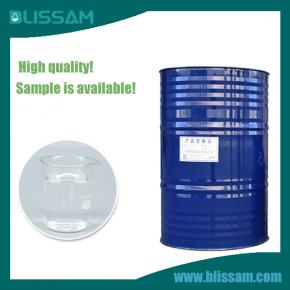


1high tack silicone resin products exhibit excellent chemical resistance, making them very popular in a variety of industrial environments. They can withstand exposure to acids, solvents and other harsh chemicals without degrading, making them a reliable choice for use in environments where chemical exposure is a concern.
2high tack silicone resin is a type of synthetic compound that is widely used in industrial and commercial applications due to its exceptional resistance to corrosion. Unlike other materials, silicone resin does not corrode or degrade when exposed to harsh environmental conditions, making it the top choice for use in corrosive environments.

where the potential of silicone resin is being harnessed in new and exciting ways. With its unique properties such as high thermal resistance, superb adhesion, and excellent weathering resistance, silicone resin has become a favored material for high-performance coatings. From industrial products to consumer goods, our cutting-edge silicone resin coatings provide superior protection and durability, making them an essential choice for a wide range of applications. Join us as we unleash the untapped potential of silicone resin and revolutionize the world of coatings.
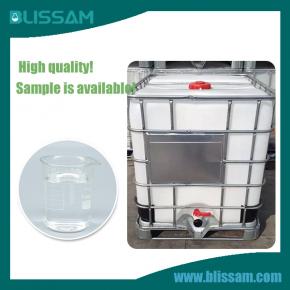
Silicone resin is a versatile and durable material that has become increasingly popular in a wide range of industries. It is a synthetic polymer that is made from silicon, oxygen, carbon, and hydrogen. Its unique chemical properties make it resistant to high temperatures, UV rays, and chemicals, making it an ideal choice for a variety of applications.One of the key features of silicone resin is its durability. It has a strong and flexible molecular structure, making it resistant to wear and tear. This makes it a popular choice for products that require frequent use or exposure to harsh environments.In addition to its durability, silicone resin is also highly versatile. It can be easily molded into various shapes and forms, making it suitable for a wide range of applications. It is commonly used in the production of sealants, adhesives, and coatings for construction and automotive industries.
Silicone Resin--An Ultimate FAQ Guide.
1.Can Silicone Resin be used as coating?
2.What application areas can Silicone Resin be used in?
3.Is Silicone Resin biodegradable?
4.What properties does Silicone Resin have?
5.About Silicone Resin R&D capabilities
6.Is Silicone Resin available in multiple colors?
7.What are the main ingredients of Silicone Resin?
8.About Silicone Resin raw materials
9.About Silicone Resin production equipment
10.Does Silicone Resin have any impact on the environment?
11.Is Silicone Resin scratch-resistant?
12.What effect does Silicone Resin have on temperature changes?
13.Can Silicone Resin be used to make gap fillers?
14.What happens to Silicone Resin when exposed to light?
15.About Silicone Resin patent
16.About Silicone Resin raw material procurement system
17.What is the texture of Silicone Resin?
18.Can Silicone Resin be used to create products with corrosion-resistant properties?
19.What happens when Silicone Resin comes in contact with air?
20.Can Silicone Resin be used as an adhesive?
1.Can Silicone Resin be used as coating?
Yes, Organic silicone resin is mainly used in high-temperature coatings, wear-resistant coatings, anti stick coatings, and waterproof coatings.
2.What application areas can Silicone Resin be used in?
Organic silicone resin is mainly used as insulation paint (including varnish, enamel, color paint, impregnation paint, etc.) to impregnate H-grade motor and transformer coils, as well as to impregnate glass cloth, glass cloth wire, and asbestos cloth to make motor sleeves, electrical insulation windings, etc. Large area mica sheet insulation material can be prepared by bonding mica with organic silicon insulation paint, which can be used as the main insulation of high-voltage motors. In addition, silicone resin can also be used as heat-resistant and weather resistant anti-corrosion coatings, metal protective coatings, waterproof and moisture-proof coatings for construction projects, release agents, adhesives, and secondary processing into organosilicon plastics. It is used in electronics, electrical, and national defense industries as semiconductor packaging materials, and electronic and electrical silicone resins can be roughly divided into organosilicon insulation coatings, organosilicon coatings, and There are several major categories such as silicone plastics and silicone adhesives. Silicone resin processing additives have unique flexibility and compatibility, and have become a key component in the production of pulp and household paper. The details are as follows: (1) Electrical insulation paint: The volume, quality, and service life of motor appliances are closely related to the performance of electrical insulation materials. Therefore, various types of electrical insulation paints are required in industry, including coil impregnation paint, glass cloth impregnation paint, mica bonded insulation paint, and silicon paint for electronic and electrical protection. (2) Coating: Silicone resin has excellent properties such as heat resistance, cold resistance, weather resistance, and hydrophobicity. In addition, it can obtain colorless, transparent, and has good adhesion and wear resistance coatings, as well as anti adhesion and anti detachment coatings and moisture-proof and hydrophobic coatings. (3) Adhesive: There are two types of polysiloxanes used as adhesives: silicone type and silicone resin type, with differences in structure and crosslinking density between the two. Among them, there are resin based adhesives, including pure silicone resin and modified resin. (4) Plastics: mainly used in heat resistant, insulating, organic silicon plastics, arc resistant packaging plastics for semiconductor module shells, and foamed plastics. (5) Micro powder and trapezoidal polymer: Compared with inorganic fillers, silicone resin micro powder has the characteristics of low relative density, heat resistance, weather resistance, lubricity, and hydrophobicity. The trapezoidal silicone resin has higher heat resistance, electrical insulation, and flame resistance than the general mesh three-dimensional structure silicone resin.
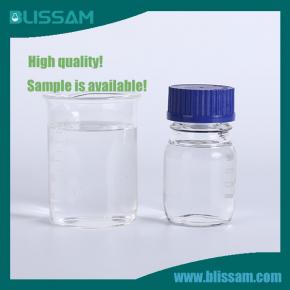
3.Is Silicone Resin biodegradable?
There is currently no clear answer to the question of whether organic silicone resin can be biodegradable. The biodegradability of organic silicone resins varies depending on their composition and environmental conditions. Some organic silicone resins can be biodegradable, but not all organic silicone resins can be biodegradable. In the natural environment, the biodegradation process of organic silicone resin may be influenced by various factors, including microbial species, temperature, humidity, pH value, etc. Some specific microorganisms can decompose organic silicone resin, breaking it down into smaller molecules, ultimately converting it into harmless substances such as water and carbon dioxide. However, the biodegradability of organic silicone resins is not one of their main application characteristics. They are more widely used in fields such as optics, electronics, and medicine, where the stability, heat resistance, and transparency of materials are more important. Therefore, in the design and application process, we focus more on these performance indicators rather than biodegradability. Overall, the biodegradability of silicone resins varies depending on their composition and environmental conditions, but their stability, heat resistance, and light transmittance are more critical in applications in optical, electronic, and medical fields. Therefore, when selecting and using silicone resins, we need to consider them comprehensively based on specific application needs and environmental conditions.
4.What properties does Silicone Resin have?
Silicone resin is a thermosetting plastic, and one of its most prominent properties is its excellent thermal oxidation stability. After heating at 250 ℃ for 24 hours, the weight loss of silicone resin is only 2-8%. Another outstanding performance of silicone resin is its excellent electrical insulation performance, which can maintain its good insulation performance over a wide temperature and frequency range. characteristic (1) Silicone resin has good bonding performance to metals such as iron, aluminum, and tin, and is also easy to bond to glass and ceramics, but its adhesion to copper is poor; (2) Organic silicone adhesive based on pure silicone resin, mixed with inorganic fillers and solvents, releases small molecules during curing and requires heating and pressure; (3) The curing temperature of adhesives based on silicone resin is too high, which limits their application; (4) By adding a small amount of ethyl orthosilicate, potassium acetate, and silicate glass, the curing temperature was reduced to 220-200 ℃, and the high-temperature strength was still 392-490MPa; (5) Pure silicone resin has low mechanical strength and can achieve high-temperature resistance and excellent mechanical properties when co modified with organic resins such as polyester, epoxy, or phenolic. It is used for high-temperature resistant structural adhesives.
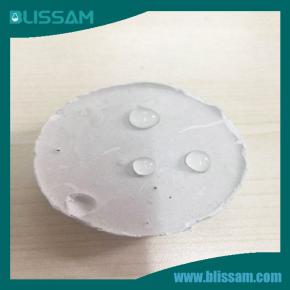
5.About Silicone Resin R&D capabilities
We have collaborated with many research institutions to carry out many innovative projects.
6.Is Silicone Resin available in multiple colors?
The color of organic silicone resin is mainly achieved by adding dyes to achieve different colors, divided into two colors: fully transparent and partially transparent. An opaque color is divided into three colors: milky white, gray black, and dark gray, suitable for different natural environments. No matter which color of adhesive is used, it can be very earthquake resistant, waterproof, corrosion-resistant, and resistant to high and low temperature tests, making it less prone to problems.
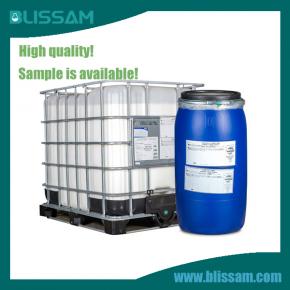
7.What are the main ingredients of Silicone Resin?
Organic silicone resin is a highly cross-linked network structure of polyorganosiloxanes, usually composed of various mixtures of methyltrichlorosilane, dimethyldichlorosilane, phenyltrichlorosilane, diphenyldichlorosilane, or methylphenyldichlorosilane. In the presence of organic solvents such as toluene, it is decomposed with water at lower temperatures to obtain acidic hydrolysates. The initial product of hydrolysis is a mixture of cyclic, linear, and cross-linked polymers, typically containing a considerable amount of hydroxyl groups. The hydrolysate is washed with water to remove the acid, and the neutral initial condensate is thermally oxidized in air or further condensed in the presence of a catalyst, ultimately forming a highly cross-linked three-dimensional network structure.
8.About Silicone Resin raw materials
1. Supplier audit: Strictly audit suppliers, including their qualification evaluation, quality management system evaluation, production equipment and process evaluation, to ensure stable and reliable raw material quality of suppliers. 2. Raw material inspection: Conduct a comprehensive inspection of all raw materials entering chemical production to ensure stable quality and compliance with product manufacturing requirements. 3. Quality Record and Traceability: Establish a comprehensive quality record system to record the quality information of each batch of chemical materials, including supplier information, inspection records, and quality issue handling records. At the same time, ensure the traceability of materials, so that the source and quality of materials can be traced when needed. 4. Intermediate inspection: Regularly inspect intermediate products during the production process to ensure that the quality of each link meets the requirements. 5. Final product inspection: Conduct a comprehensive inspection of the final product, including appearance, performance indicators, safety performance, etc., to ensure that the product quality meets national standards and user requirements. 6. Continuous improvement: By continuously monitoring and evaluating the production process and raw material quality, potential problems are identified and improvement measures are taken to improve production efficiency and product quality.

9.About Silicone Resin production equipment
Silicone resin production equipment refers to the machinery and devices used for manufacturing and processing silicone resin. This type of equipment is crucial in the production process of silicone resin, which is a versatile and widely used material with applications in industries such as construction, electronics, and automotive. The production equipment includes various machines, such as mixers, reactors, pumps, and filtration systems, that are essential for the efficient and consistent production of high-quality silicone resin. With the advancement of technology, modern silicone resin production equipment also incorporates automation and control systems, ensuring precision and reducing labor costs. Overall, silicone resin production equipment plays a critical role in providing high-quality and cost-effective silicone resin products to meet the demands of various industries.
10.Does Silicone Resin have any impact on the environment?
Organic silicone resin is a green and environmentally friendly building material that does not cause any harm to the environment and human body.

11.Is Silicone Resin scratch-resistant?
Silicone resin has good scratch resistance. Organic silicone resin can be used to improve its weather resistance and scratch resistance in automotive glass and leather coatings. In addition, it also has other excellent properties, such as high temperature resistance, corrosion resistance, low surface energy, etc., thus playing an important role in industrial production and daily life.
12.What effect does Silicone Resin have on temperature changes?
The temperature resistance of organic silicone resin mainly depends on the strength of the silicon oxygen bonds in its molecular structure. Silicon oxygen bonds are a strong chemical bond with a bond energy of up to 300 kcal/mol (approximately 429.8KJ/mol). This means that when the silicone resin is heated, the silicon oxygen bond will be destroyed, releasing a large amount of heat. However, as the temperature increases, the movement of molecular chains in organic silicone resin will also accelerate, leading to more cleavage of silicon oxygen bonds. In this way, the heat resistance of the silicone resin will gradually decrease. According to experimental data, the melting point of ordinary silicone resin is between 200 and 250 ° C, and the ignition point is between 180 and 230 ° C. These data indicate that organic silicone resin is stable at room temperature, but once subjected to high temperatures, it will undergo decomposition, melting, or combustion. However, for specially modified silicone resins, their temperature resistance can be significantly improved. For example, organic silicone resin modified with alumina can have a temperature resistance of 300-400 ° C; The temperature resistance of organic silicone resin reinforced with carbon fibers can reach over 600 ° C; The silicone resin modified with fluoride has a temperature resistance of over 1000 ° C.
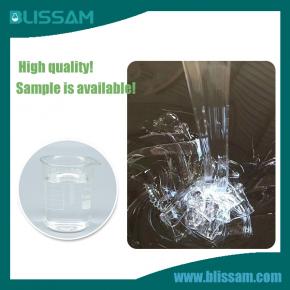
13.Can Silicone Resin be used to make gap fillers?
The high elasticity and wear resistance of organic silicone resin make it a good filling material. Its application areas include: - filling of cables and cables - protective gaskets for electronic components - sealing strips for aircraft and cars
14.What happens to Silicone Resin when exposed to light?
Light cured silicone resin is a type of organic silicon material that can be solidified into a solid through light irradiation. It is usually composed of organic silicon monomers and photoinitiator. When light shines on the surface of the resin, the initiator undergoes a photochemical reaction, triggering a crosslinking reaction of the silicone monomer, thereby solidifying the resin into a hard solid.

15.About Silicone Resin patent
Silicone resin is a versatile and widely used material in various industries, such as electronics, aerospace, automotive, and construction. It is a type of polymer that is composed of cross-linked silicon-oxygen bonds, which give it exceptional thermal and chemical resistance, as well as excellent electrical insulation properties. Silicone resin has been granted numerous patents due to its unique properties and wide range of applications. These patents cover various methods of production, modifications, and applications of silicone resin, making it a highly valuable material in the modern world. Its durability, flexibility, and low toxicity make it a preferred choice for many manufacturers and engineers. With ongoing research and development in the field, silicone resin continues to be a key player in the advancement of new technologies and products.
16.About Silicone Resin raw material procurement system
1. Strengthen supply chain management: By optimizing the supply chain, such as selecting high-quality suppliers, developing reasonable procurement plans, and strengthening logistics management, to ensure the stable supply and quality of raw materials. 2. Develop quality policies and objectives: Clarify the company's quality policies and objectives and communicate them to all employees. Make employees aware of the company's quality requirements and carry out production and quality control in accordance with the requirements. 3. Adopting international standards and certifications: Actively adopting internationally recognized product quality standards and methods, and passing international certifications to ensure that products meet international standards.
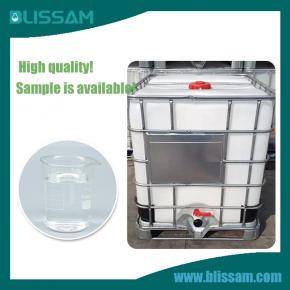
17.What is the texture of Silicone Resin?
Hand feel is a very important indicator for measuring the quality of finished leather. The use of hand feel agents in the top coating of leather can greatly improve the comfort, aesthetics, and added value of leather. Among the hand feeling agents, silicone hand feeling agents have the best effect, the most varieties, the widest application, and the fastest development. The leather treated with organic silicon tactile agent can not only maintain elasticity, fullness, breathability, and hygiene performance, but also improve the tactile feel and softness. After finishing, the drying speed is fast, and it is not easy to become hard or brittle after drying. The surface of the leather has good stability to water and chemicals.
18.Can Silicone Resin be used to create products with corrosion-resistant properties?
Yes.Silicone resin has corrosion resistance, which can resist certain sulfuric acid, hydrochloric acid and other similar acidic media. Therefore, it is often used as a material for synthetic rubber, foam plastics and other products.
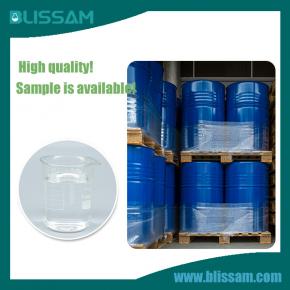
19.What happens when Silicone Resin comes in contact with air?
Silicone resin is a thermosetting plastic, and one of its most prominent properties is its excellent thermal oxidation stability.
20.Can Silicone Resin be used as an adhesive?
Yes, Silicone resin adhesive, a thermosetting adhesive mainly composed of organic silicone resin. It has good peel strength, flexibility, water resistance, and weather resistance. Adhesive products can work in a large temperature range of -60~250 ℃, and can be used to bond various substrates such as metal, glass, rubber, plastic, paper, etc., but the cost is high. There are mainly two types: one component room temperature curing type and two component room temperature curing type.
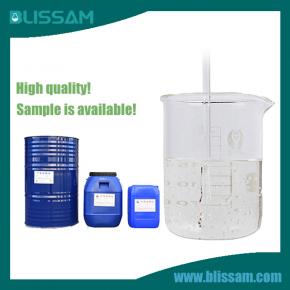
Tag:Silicone Emulsion,Defoamer
Contact:
Phone: +86-15957191858
E-mail: info@blissam.com
Whatsapp:+8615957191858
Add: A647, No. 9, Xiyuan Road, Xihu District, Hangzhou, Zhejiang, China
We chat
